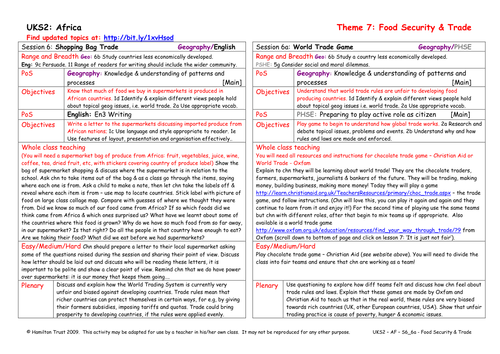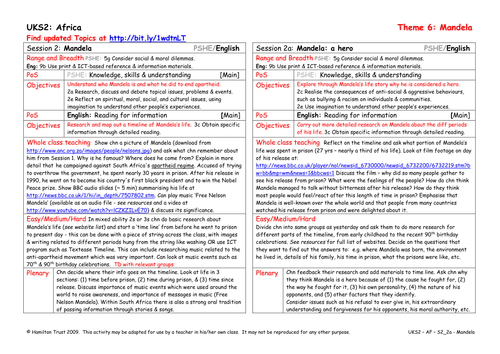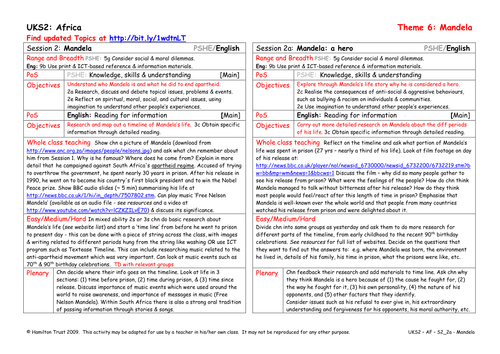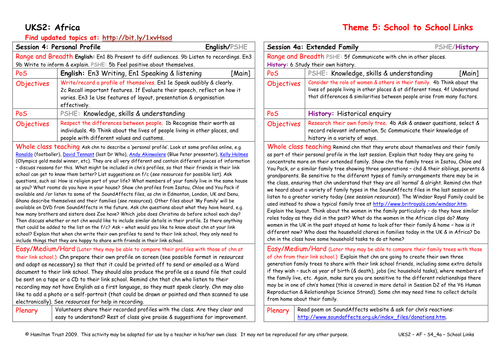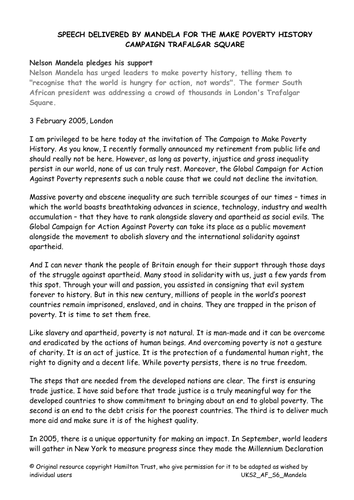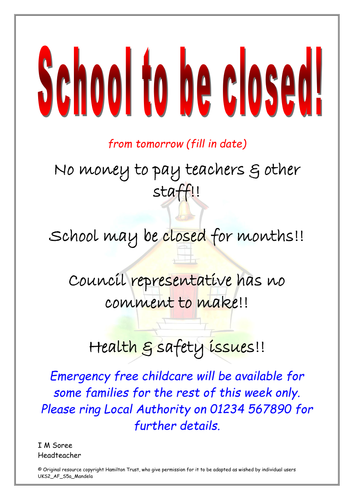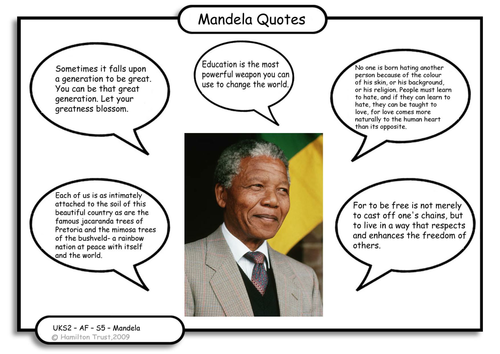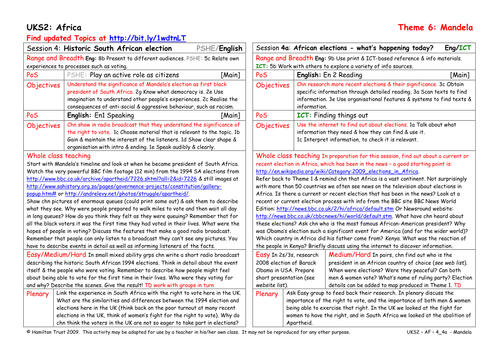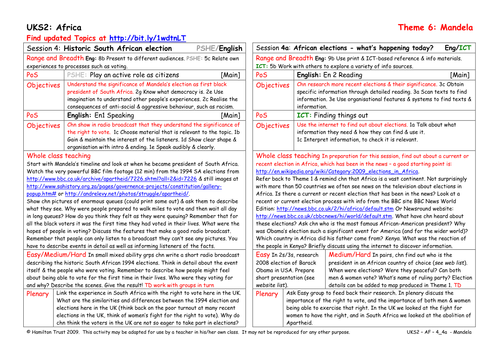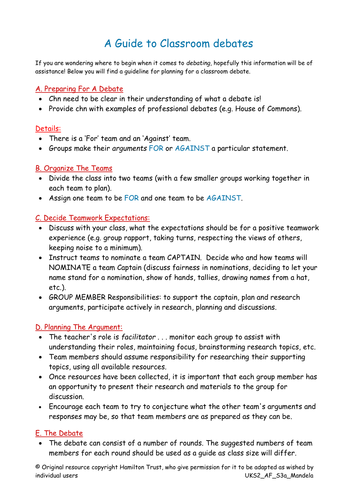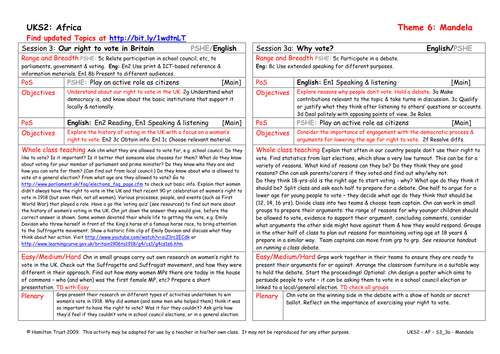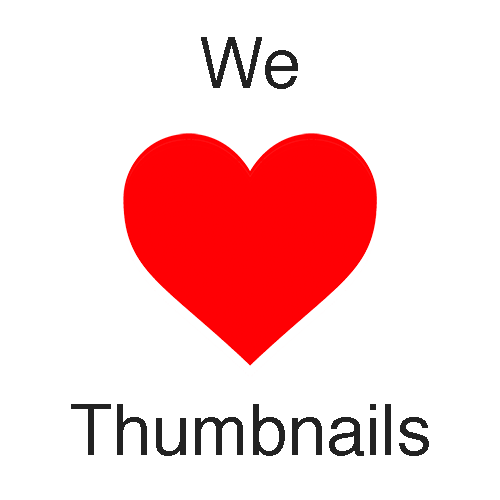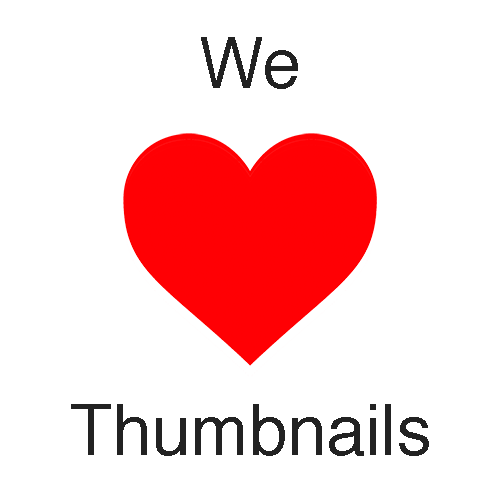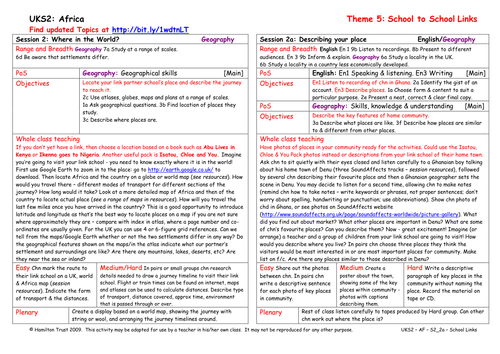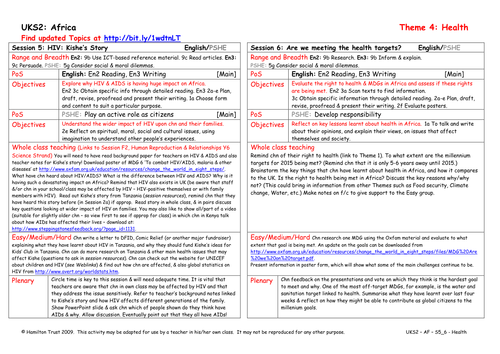
397Uploads
10045k+Views
11646k+Downloads
English language arts

Mini World Cup
Is your school ready for kick off? In this session you help the children plan a mini world cup for your school. How can you get other children involved? Who will take responsibility for each aspect of the mini tournament?

Spotlight on South Africa 2010
In 2010 the eyes of the World will be on South Africa and a country where once no sports teams visited will be a focal point for 32 teams and their fans. Children find out more about the 9 host cities and create tourist guides for each.

Shopping Bag Trade
Children learn how much of the food we buy in supermarkets is produced in African countries. They discuss this in the light of their knowledge of fair trade and write a letter to the local supermarket to discuss the issues.

Mandela: A Hero
Look in more detail at Mandela’s life and in particular share with children a film of his release from prison. Reflect on reasons why Mandela is considered a hero by so many people all over the world. Add further details to the timeline.
Suitable for years 5 and 6.

Mandela
Link apartheid to Mandela. Who he is, where he comes from, why he is so famous, right up to the present day. Use internet and books to find information about Mandela’s life and start to develop a time line as a useful tool to refer to throughout the theme.
Suitable for years 5 and 6.

Journey To Jo'burg
Explore in more detail the history of apartheid in South Africa, with links to Mandela. Look at the signs that were displayed.
Pick out examples of effects of apartheid on non-whites in Journey to Jo’burg, and act out short scenes that show these effects.
Suitable for years 5 and 6.

Personal Profile
Use celebrity profiles to decide what children might include in their personal profile to introduce themselves to their link school friends. Listen to Ghanaian children describing themselves and their families. Prepare own profiles on screen or as recordings.

Mandela and Poverty
Children study a Mandela speech on poverty and analyse why it’s so importance in terms of content, context and process. Children plan and write their own speech on the right to education.
Suitable for years 5 and 6.

The Right to Education
Through role play children consider for themselves the impact of no access to school.
They plan a poster campaign or write a persuasive letter to reopen their school. Links to Children’s Rights to Education.
Suitable for years 5 and 6.

Mandela and Education
This session examines through real stories the varied reasons why 40 million children in Africa don’t attend school. Children play a ranking game to explore obstacles to education.
Suitable for years 5 and 6.

African Elections
Africa is a large continent with over 50 countries – usually there is an election going on somewhere! Children research a current/recent election in Africa and/or the election of Barack Obama as President of USA. Discuss the significance of Obama’s election.
Suitable for years 5 and 6.

Historic South African election
Black Africans were very eager to vote in the 1994 South African election. Discuss the significance of Mandela’s election as the first black president in South Africa. Use historic film footage to show queues of voters and reactions to the election.
Suitable for years 5 and 6.

Why Vote?
Discuss facts about voting in the UK: not everyone exercises their right to vote. Engage children on the right to vote and its significance in their own country. In two teams for and against, debate the issue of lowering the voting age.
Suitable for years 5 and 6.

Our right to vote in Britain
Examine voting in the UK, recent elections, and why we vote. Children use a quiz to explore the history of voting in the UK and focus on women’s right to vote, and then do further research. Watch film footage of Emily Davison.
Suitable for years 5 and 6.

School's Out!
What do children do when they are not in the classroom? At playtimes, evenings and weekends? Discuss sport, games and hobbies. Write instructions for a playtime game or making a craft object to send to their link school friends. Try an African game or craft.
Suitable for years 5 and 6.

School Structure
Compare your school with your link school (or use a Ghanaian school). The UNICEF book 'A school like mine' is used as a starting point to look at similarities and differences. Children prepare a website describing their school or the UK education system.
Suitable for years 5 and 6.

Daily Life
Children describe their daily lives. They think about the things they do regularly each day, each week and at weekends. Look at the features of diaries and then children keep a diary for a week to share with their link school friends. Compare with lives of other children.
Suitable for years 5 and 6.

Describing Your Place
Listen carefully to some children in Ghana describing their home town or use descriptions from your link school friends of their town. Imagine the teacher and some children from your link school are going to visit your town! Describe the places they should visit.
Suitable for years 5 and 6.

Making A Link
Discuss the reasons why linking with a school in Africa is important & emphasise its importance in helping to fulfil the Millennium Development Goals. Chn tackle a CAFOD activity to act as advisers to an aid agency distributing funds to suitable projects.
Suitable for years 5 and 6.

Are we meeting the health targets?
Reflect back on ‘Right to health and MDGs. Investigate how far children think their rights and the MDGs related to health are being met. Present a MDG in an interesting way.
Suitable for years 5 and 6.



